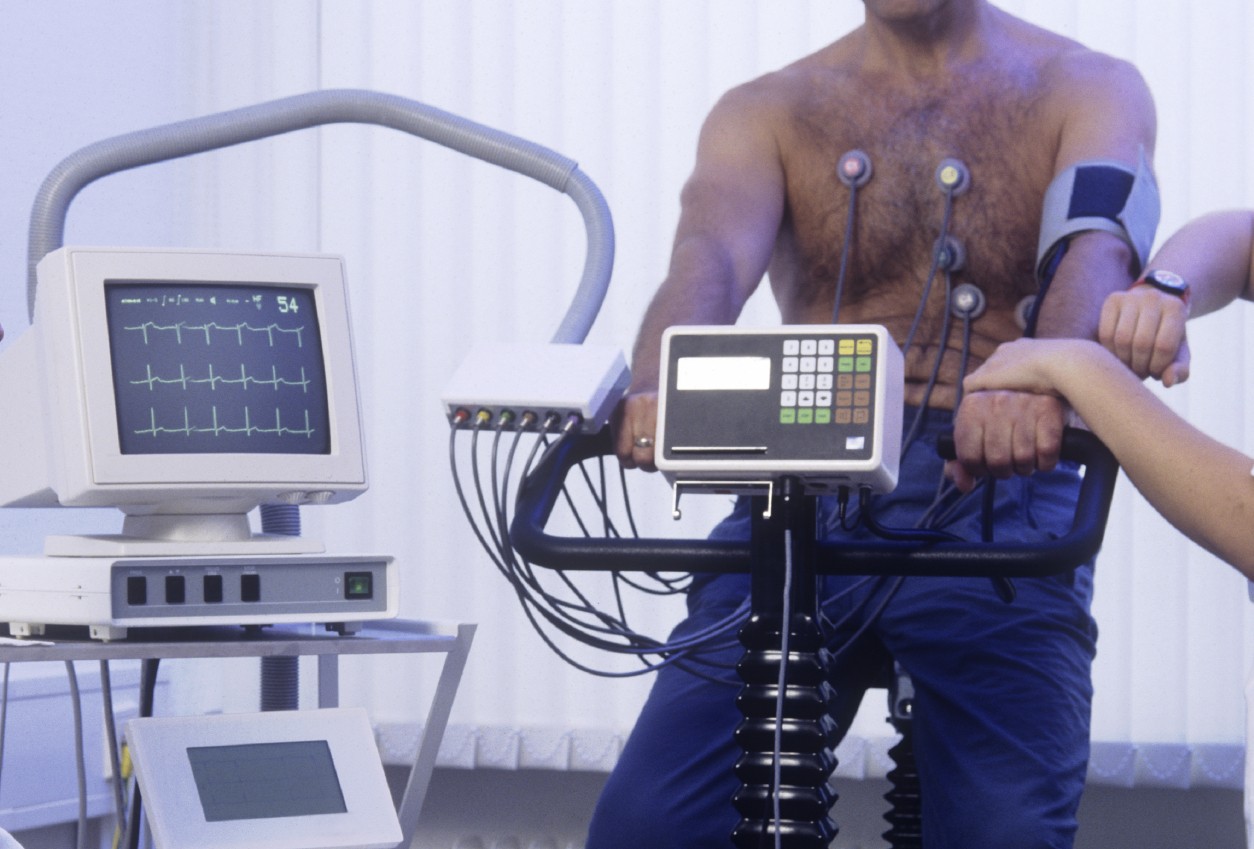STRESS TEST
A stress test, sometimes called a treadmill test or exercise test, helps your doctor find out how well your heart handles its workload. As your body works harder during the test it requires more fuel and your heart has to pump more blood. The test can show if there’s a lack of blood supply through the arteries that go to the heart. Taking a stress test also helps your doctor know the kind and level of physical activity that’s right for you.
Why do people need stress tests?
Doctors use exercise stress tests to find out:
- If you have an irregular heartbeat
- If your symptoms (such as chest pain or difficulty breathing) are related to your heart
- How hard you should exercise when you are joining a cardiac rehabilitation program or starting an exercise program
- If treatments you have received for heart disease are working
- If you need other tests (such as a coronary angiogram) to detect narrowed arteries
How to Prepare?
- Tell your doctor about any medicines (including over-the-counter, herbs and vitamins) you take. He or she may ask you not to take them before the test. Don’t stop taking them unless the doctor says to.
- You may be asked not to eat, drink or smoke for two to four hours before the test. You may drink water.
- Wear comfortable, loose-fitting clothing and walking shoes with rubber soles. Shorts or sweatpants and jogging or tennis shoes are good choices.
What happens during the test?
- Wires, or electrodes, will be hooked up to your chest and arms or shoulders. The wires are connected to the ECG machine.
- You walk slowly in place on the treadmill.
- The treadmill tilts so you feel like you’re walking up a small hill.
- The treadmill changes speeds to make you walk faster.
- You may be asked to breathe into a tube for a couple of minutes.
- You can stop the test at any time if you need to.
- After slowing down for a few minutes, you’ll sit or lie down and your heart and blood pressure will be checked.
- Near the end, you may breathe into a mouthpiece that will measure the air you breathe out.
What is monitored during the test?
- Your heart rate
- Your breathing
- Your blood pressure
- Your electrocardiogram (ECG or EKG)
- How tired you feel — the electrocardiography machine will record your heartbeat and heart waves in an electrocardiogram (ECG).
Is there a risk?
- There’s very little risk — no more than if you walked fast or jogged up a big hill.
- Medical professionals are on hand in case anything unusual happens during the test.
Source: https://www.heart.org/idc/groups/heart-public/@wcm/@hcm/documents/downloadable/ucm_300453.pdf



